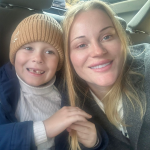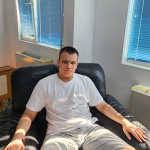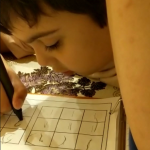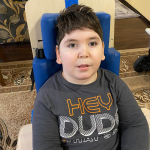Maintaining Water Balance in Autism
Maintaining good health is extremely important, and not feeling thirsty is a key part of that, but many people with autism drink too little water throughout the day. This happens for various reasons. For instance, individuals with autism often have difficulties processing information coming from their senses. The lack of a “signal” to indicate when they need to drink water makes it harder for them to maintain balance, even if they understand that it is important.
Water balance is crucial for overall health and cognitive abilities. Maintaining it is one of the simplest and most important tasks because when it’s balanced, the brain processes data more efficiently, energy levels are higher, and the body functions optimally. This is especially relevant for people with autism, who may experience cognitive difficulties or are less active.
Reasons for Lack of Thirst
The reasons for not feeling thirsty can vary widely. In autism, there is often an increased or decreased sensitivity to different stimuli coming from the senses. In the first case, a person constantly feels thirsty, while in the second case, the desire to drink may disappear altogether.
Additionally, many people with autism find it difficult to express their needs and desires, including when they are thirsty. They may also struggle to understand social cues—such as when it’s appropriate to ask for a drink. Behavioral disorders can also lead to a reluctance to drink due to a dislike of tastes—even something as neutral as plain water. Finally, the issue could be connected to repetitive behaviors that hinder drinking or mental fatigue that makes taking care of oneself challenging.
How to Avoid Dehydration
However, it is entirely possible to avoid dehydration.
- First and foremost, parents or caregivers should offer drinks more often, even if the individual with autism doesn’t feel thirsty. Even taking a few sips at a time can help ensure they get enough fluid.
- Visual cues can be used, such as pictures of a person drinking or bottles with lines indicating how much water should be consumed.
- It’s also worth experimenting with different flavors. If the individual doesn’t like the taste of plain water, try offering carbonated or flavored water.
- Drinking liquids should become part of the daily routine. If a child is taught to pour themselves water at the same time every day, it is likely to become a habit.
- It may help to use a straw or bottle instead of a cup. People with autism are often very particular about sensory experiences they like or dislike and may prefer one option over the other.
It’s important to remember that what works for one person with autism might not be suitable for another. Therefore, it’s necessary to explore all possible ways to avoid dehydration. However, preventing issues can be much easier if autism is completely eliminated or its symptoms are alleviated. The most effective help can come from cell therapy—a modern, reliable, and safe method of treating the disorder.
Cell therapy involves transplanting the patient’s own stem cells, which eliminates the risk of rejection. As a result of the procedure, damaged cells are replaced with healthy ones, and soon after, the brain and nervous system begin to function as nature intended.
This type of correction is widely accepted and can become the main form of treatment. It is successfully used in leading clinics worldwide, including the Mardaleishvili Medical Center. Its advantages include the presence of highly qualified specialists and modern equipment, which are essential for achieving positive, fast, and long-term therapeutic results. Additionally, the prices for services at the center are lower than in other countries with comparable medical care, and the center assists patients with travel planning, accommodation during rehabilitation, and other matters.
Undergo cell therapy—and never feel thirsty again!
Autism Treatment Center Videos
Autism treatment with own stem cells
Cord blood association congress
International Quality Crown
Autism Treatment Reviews
Autism treatment with own stem cells
The story of Alessandro (6 years old)
Autism Patient Testimonial - Stem Cell Treatment
Clients Testimonials

Feedback from Igor, David’s father (12 years old) Read More

Feedback from Olga, Fedya’s mother Read More

Feedback from Natalia, Radomir’s mother (15 years old) Read More

Feedback from Esther, Samuel’s mother (8 years old) Read More

Feedback from Abibe, Selim’s mother (7 years old) Read More












